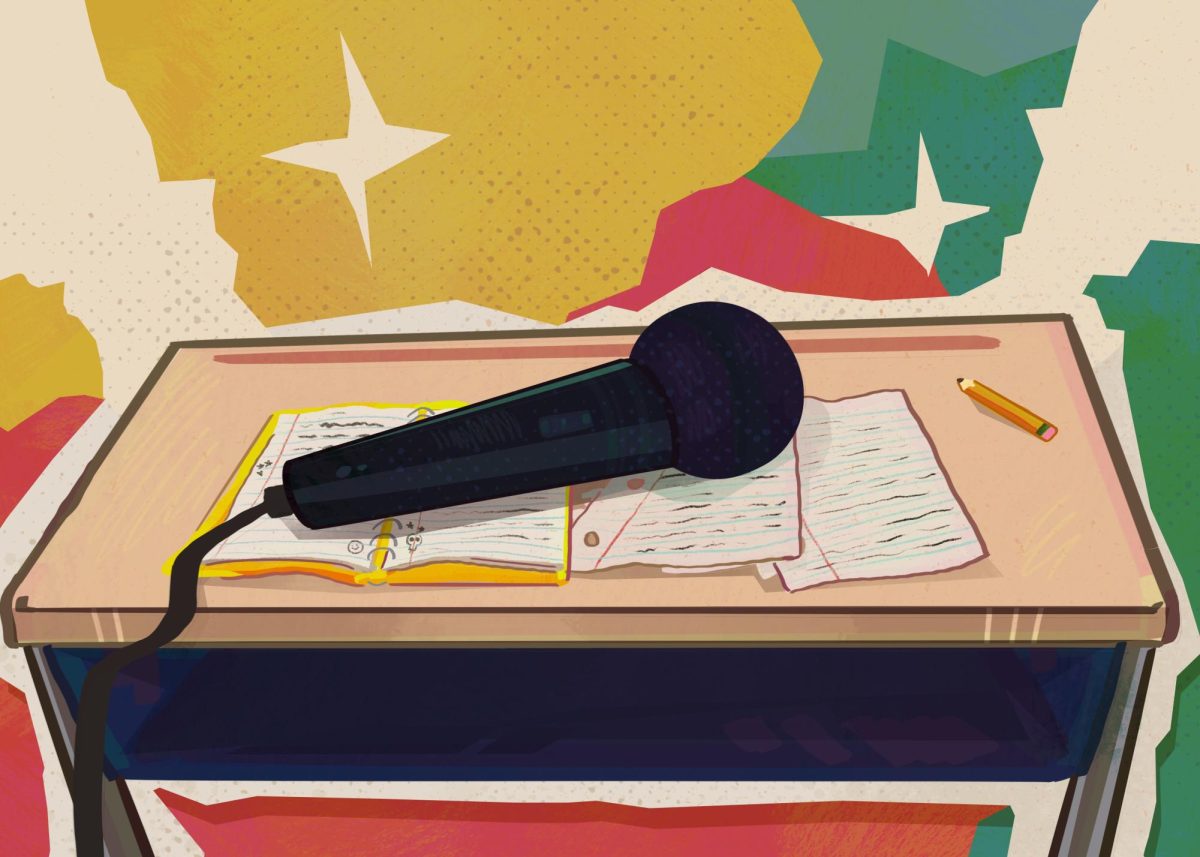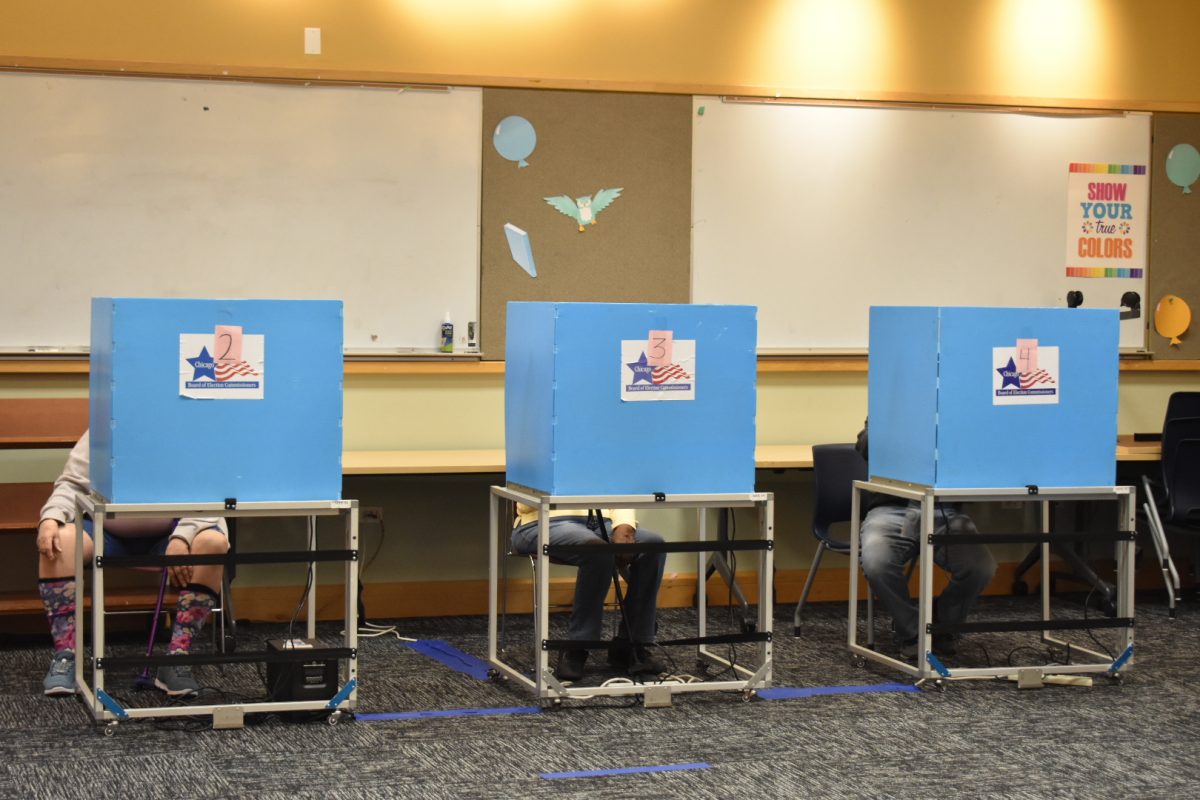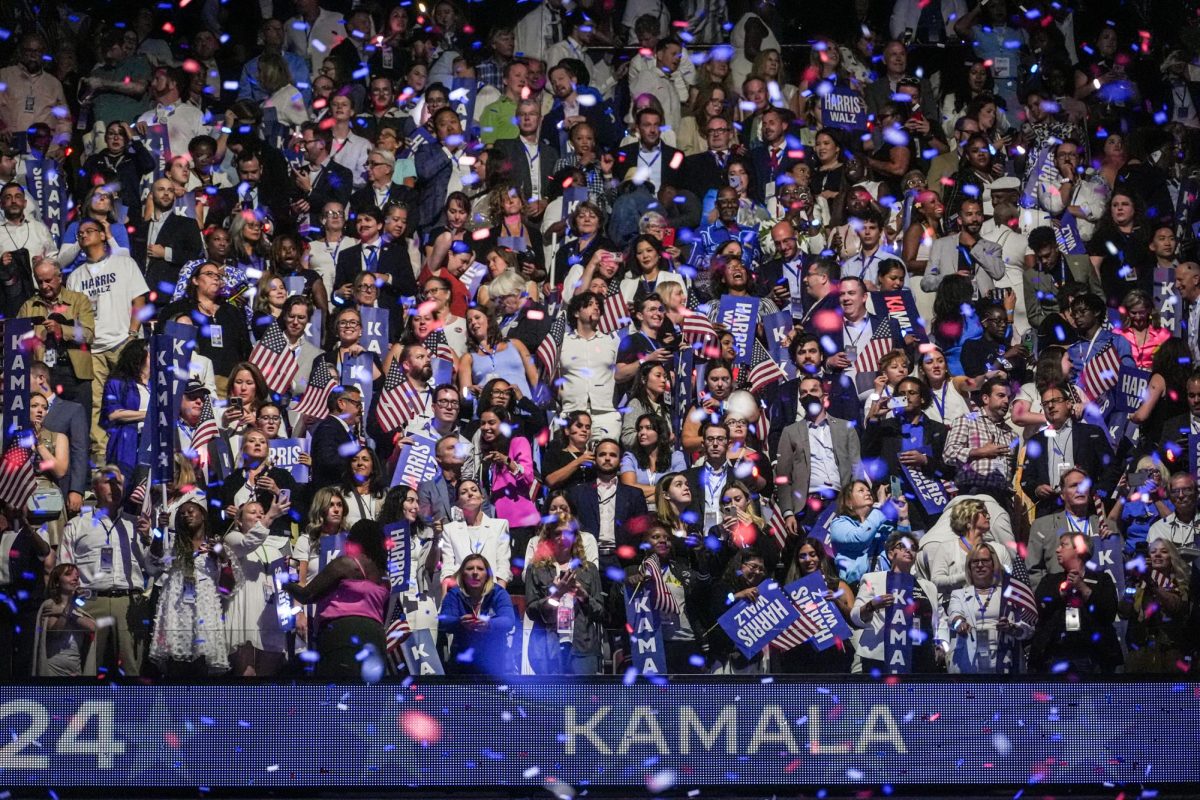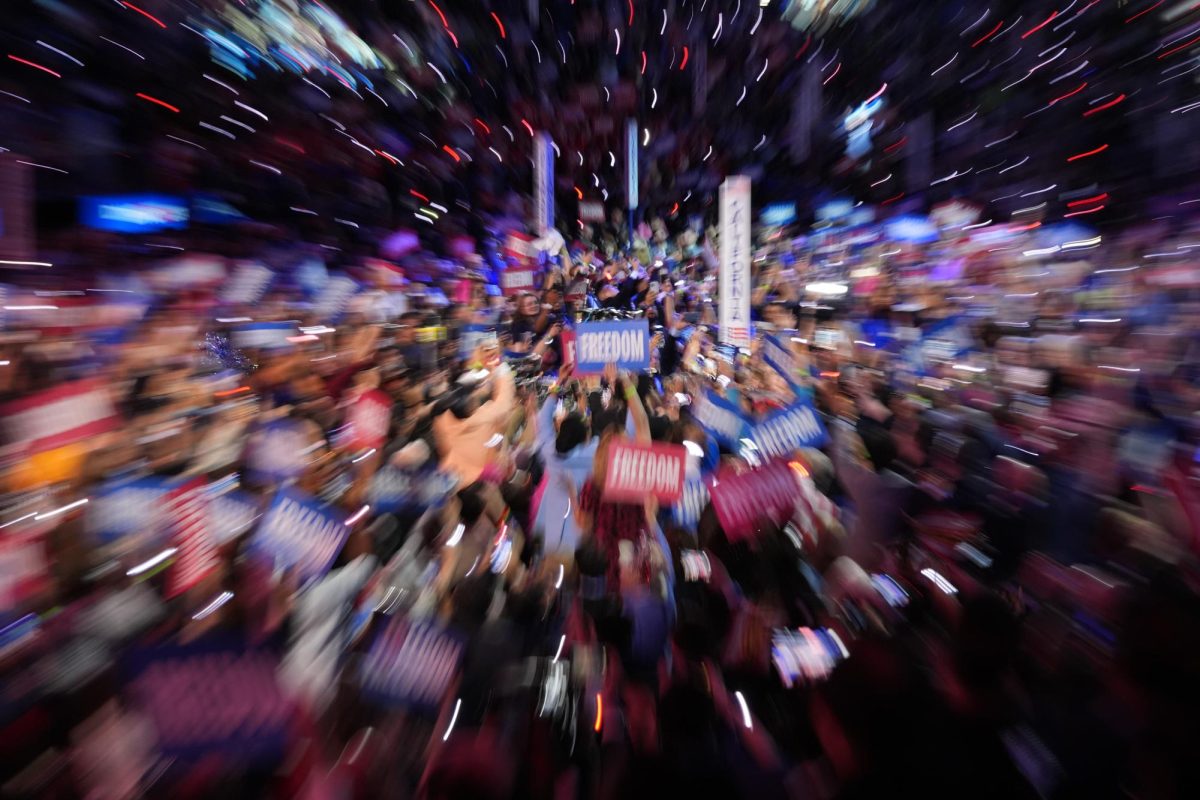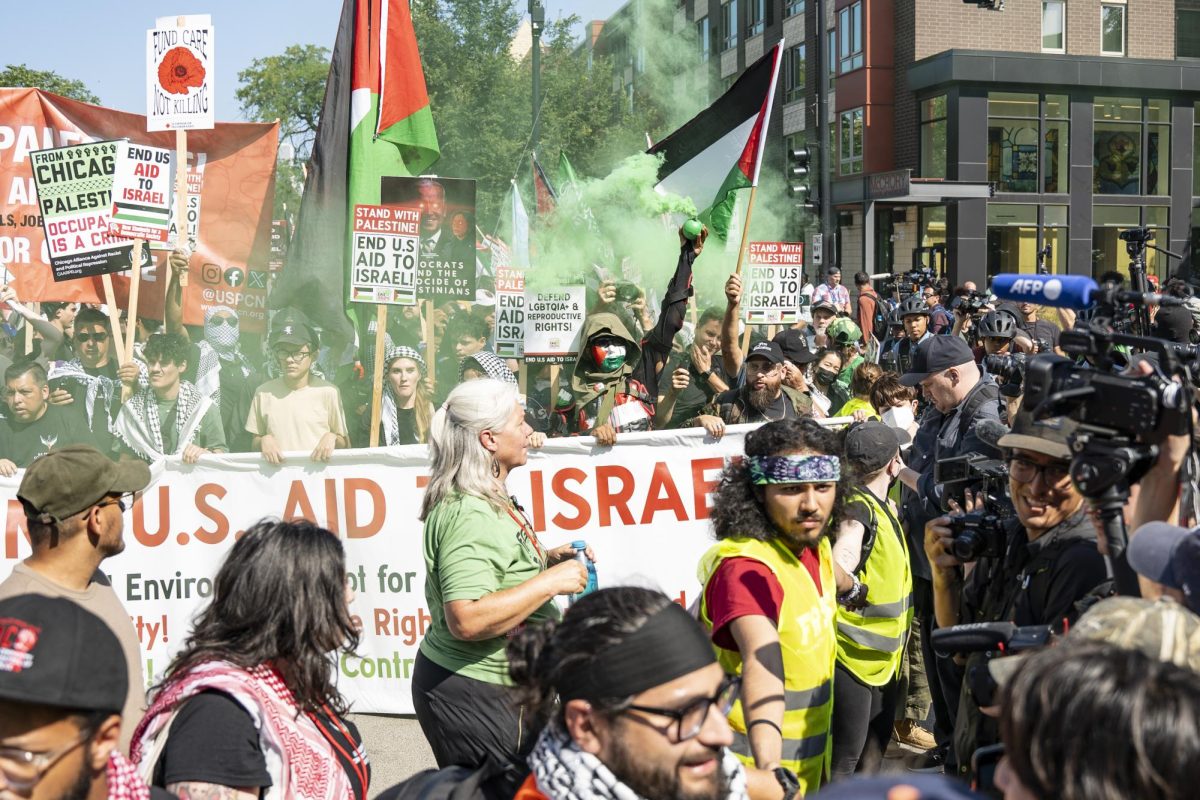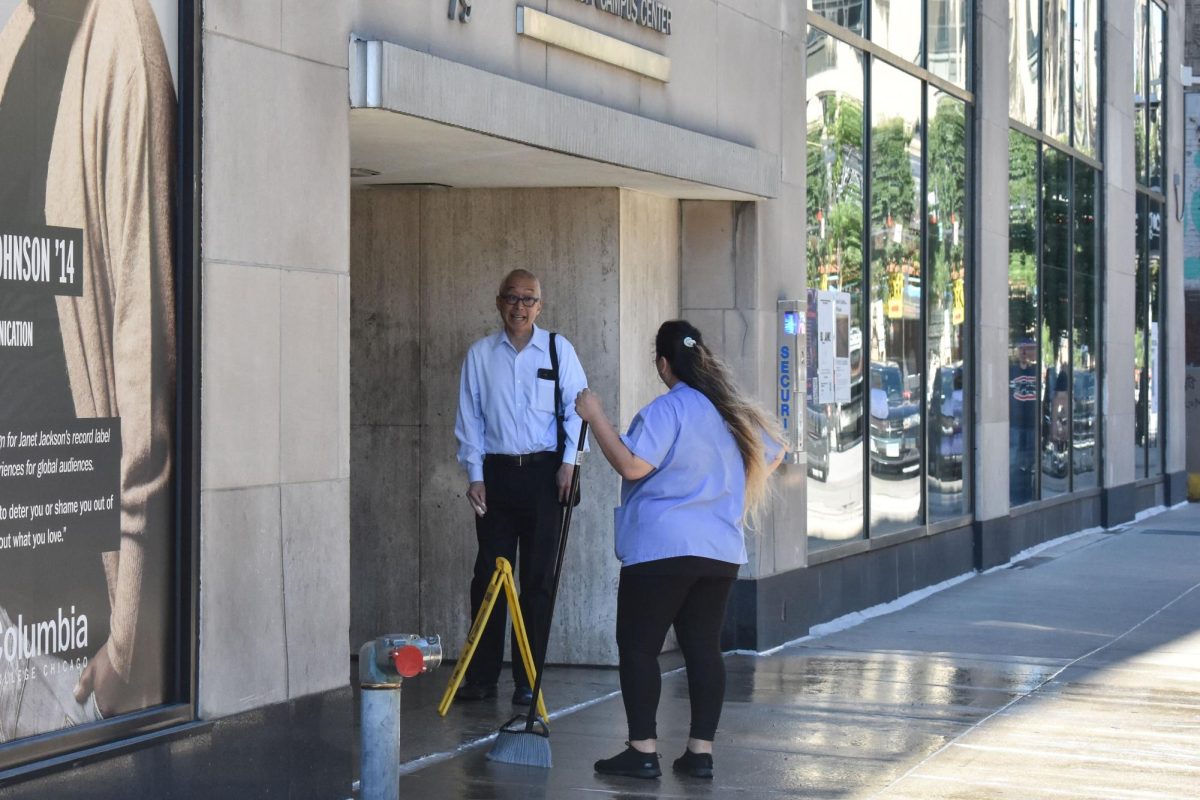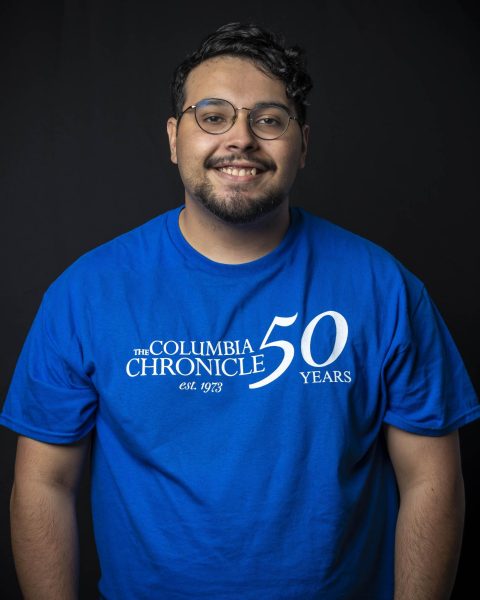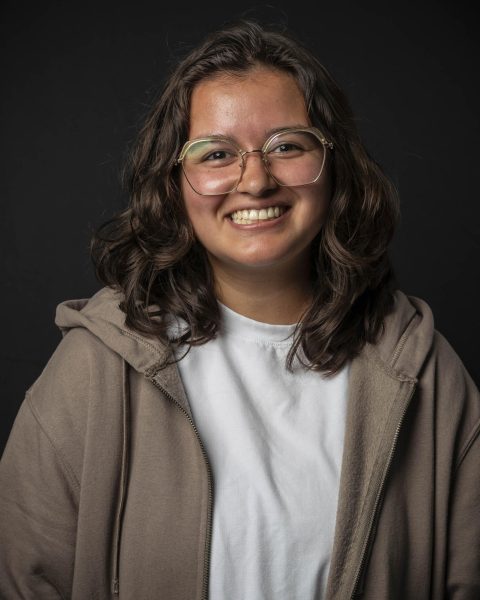THE HIP-HOP ISSUE
In 1992, iconic Chicago poet Gwendolyn Brooks was asked in an interview about her thoughts about rap in the Columbia student-run magazine, Chicago Arts and Communication.
She told the publication a few of her favorite hip-hop artists: Monie Love, Queen Latifah and Public Enemy. To her, poetry and rap were one and the same.
“Rap is poetry,” Brooks said. “Sometimes it’s good and sometimes it’s not too good.”
It is difficult to imagine hip-hop without poetry’s immense influence. Rhythm and flow, major hip-hop components, originate in poetry.
Today, the poetry program at Columbia has enabled students with an interest in hip-hop to explore and amplify their voices in both mediums.
“Students who are singers/songwriters sign up for my classes because they want a better handle on the elements (image, figurative language, rhythm) that can translate between poetry and song,” said CM Burroughs, an associate professor of poetry in the Creative Writing Department.
Rappers and musicians at Columbia have used these classes to elevate their craft. Jabari Ware, a music business major, minoring in poetry, has performed at dozens of hip-hop events.
Ware was mostly influenced by the music he was listening to when he started writing lyrics. He noted Noname, Billy Woods and Lupe Fiasco, as some lyrical influences at the time. His first attempts at rap started as poetry unintentionally.
“It was rhyme but without a beat,” Ware said.
Ware took poetry courses through the creative writing program. Poetry faculty members Lisa Fishman and Burroughs especially helped foster his growth. Now, he has noticed an improvement in his hip-hop through practicing poetry.
I “use what I learned in poetry, use that same subject matter and pushing into a beat,” Ware said. “It took some time since then, even now, it takes me a long time to do but when the finished project is there, it’s really satisfying, and it’s worth all that. Those confines and stuff like that, it sounds really good when you stay patient.”
Jesus Govea, a 2023 Columbia graduate, competed at Louder than a Bomb, a spoken-word poetry competition at Columbia, before he was at the college.
He describes his early work as rap.
“Well, it’s funny because the way that I got into spoken word is I started out writing raps,” he said.
Throughout high school, he competed on his school’s spoken word poetry team. Within a year of his last competition, he had started his degree in creative writing with a concentration in poetry. The connection between the two mediums lies in the “sonic quality,” Govea said.
“It’s the sounds like I think when it comes to like, the page poem, rhyming can get a little iffy,” Govea said. “Sometimes, at least, for me, writing could be like too on the nose, or like, everything else is kind of getting swallowed, because there’s the writer, so focus on the rhyme. But when done correctly, we got like, slant rhymes, and like half rhymes and internal rhymes like when that’s employed. And a lot of times very good rappers will use that in their works when that’s employed.”
For students interested in hip-hop and poetry, electives have become a way for students to explore both mediums. José Israel, a junior audio arts major, has taken a couple of classes in poetry.
Israel is a part of the band Rotundos he labels as Midwest Indie and hip-hop/rock adjacent. He said it is very much poetry-related.
“My work is poetry related since I write most of the lyrics,” Israel said. “I’ve gotten many compliments for the writing and lyrics of our songs and this is after studying poetry at Columbia.”
Common has influenced Israel’s work and he attributes an ancient North African poetry workshop to his poetry. He believes there is a strong connection between poetry and hip-hop.
“Poetry has existed forever. Hip Hop was essentially a reinvention of the wheel. It is the biggest music genre of all time and the newest,” Israel said. “Poetry and hip-hop share the same DNA, hip-hop is just the newest version.”
Resumen en español:
En 1992, en una entrevista realizada por la revista estudiantil de Columbia College Chicago Arts and Communication, le preguntaron a la icónica poeta de Chicago Gwendolyn Brooks su opinión sobre la música rap.
Gwendolyn expresa la influencia que tiene la poesía en el hip-hop. El programa de poesía de Columbia permite a los estudiantes explorar su música a través de ambos medios. Por ejemplo, estudiantes como Jabari Ware, con especialización en negocios de música, comenzó su carrera de rap escribiendo poesía.
“Utilizo lo que aprendí en poesía, usó el mismo tema y sigo el ritmo”, dijo Ware.
Las clases optativas que se ofrecen en la institución permiten a los estudiantes que no se especializan en hip-hop o poesía, la oportunidad de practicar una nueva habilidad lo cual puede ayudarles con su escritura musical.


